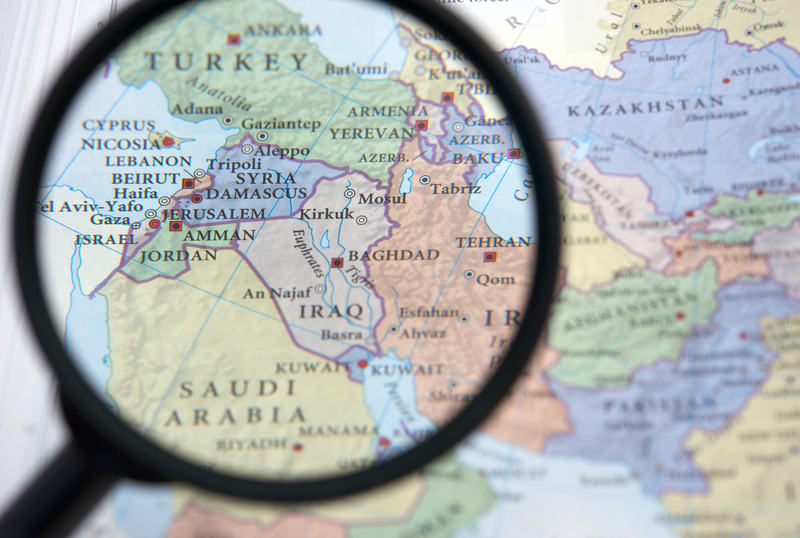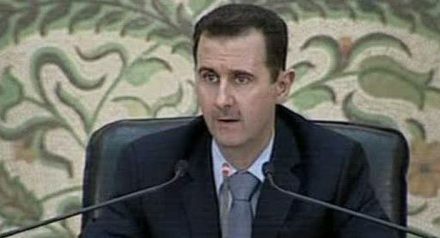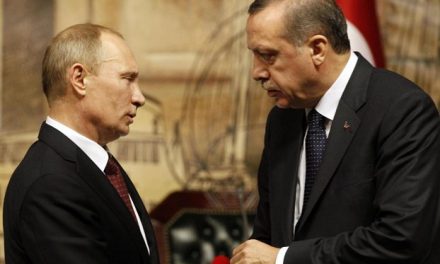By pursuing in his own way the process of US disengagement from the Middle East, Trump went even further than his Democratic predecessor.
BY RICHARD DARMON, Jerusalem Post
1.Trump unleashed a larger “earthquake” than the Iranian nuclear deal concocted in 2015 by Obama: Announced on December 19 on Twitter by President Donald Trump himself, his decision to withdraw 2,200 US Special Forces troops deployed since 2014 in northern Syria is of considerable strategic importance unrelated to the small size of this contingent.
By pursuing in his own way the process of US disengagement from the Middle East, which was largely started during the eight years of president Barack Obama’s presidency, Trump went even further than his Democratic predecessor on this way of withdrawal from the region under the isolationist election campaign slogan “America First.” Realized on December 14 during a telephone conversation between Trump and Turkish President Recep Tayyip Erdogan, this rather abrupt and irresponsible decision to abandon the Syrian theater of operations – in this confusing and explosive period – is likely to accentuate the chaos in Syria itself and everywhere around.
2. Russia and China become the only “masters of the game” in the field: Emboldened by the Obama project to make Iran mullahs, once the US left the region, the new “gendarme” of the Middle East – as well as the fact that the signing of the July 2015 Treaty of Vienna on the Iranian nuclear program was strongly encouraged by the US – President Vladimir Putin’s Russia, which feeds certain “imperial” ambitions, engulfed itself in this vacuum. It deployed in Syria in the middle of the civil war – in September 2015– a large contingent of air, naval and land forces now numbering 63,000, as well as state-of-the-art missiles and radars.
All this was to save the regime of dictator Bashar Assad, then on the verge of collapse following the assaults of the Sunni rebellion. It is clear that this latest decision by Trump makes Russia the only superpower to arbitrate, today in the field and in future negotiations, the problematic future of this key country located on the eastern Mediterranean between Iraq and Lebanon.
As for China, which has been operating geopolitically for some years, noticed in the Middle East and East Africa that as part of its gigantic strategic project of the new “Silk Road” connecting three continents (Asia, Africa, Europe), it is ahead of Russia by far as the first candidate country for Syrian reconstruction thanks to its enormous economic potential.
3. Iran, Lebanese Hezbollah and Turkey strengthened by the departure of the Americans: Symbolic in more ways than one, this retreat of US troops is a victory for Iran, whose forces are also present in Syria to support Assad with bases and missile production plants.
Persia, also nostalgic for its former empire, will be able to expand and operate at high efficiency its Tehran-Baghdad-Damascus-Beirut land corridor from the Persian Gulf to the Mediterranean (and even farther south to the Balkans) to deliver to Syria and to the Land of Cedar – especially its Hezbollah ally deployed at the gates of Israel – new quantities of weapons, ammunition and Shi’ite militia, without being hindered by the 2,200 American soldiers.
This departure will also allow Erdogan’s Islamist Turkey – with the neo-Ottoman expansionist orientations and rival with Egypt for Sunni leadership of the region, as well as a staunch supporter of Hamas in Gaza and the Libyan jihadists – to consolidate or even extend its occupation of entire regions of Syria and Iraq in order to contain the Kurds.
4. Intolerable return of international legitimacy for the Assad regime: Devoting the military victory of the Assad clan (installed in power in Syria since the coup in 1970 of Gen. Hafez Assad – father of Bashar) against the Sunni rebellion, the US withdrawal rehabilitates at the international level the bloody and murderous dictatorship of the Alawites.
5. An immoral release of the Kurdish independence cause: Another consequence of Trump, who thinks, wrongly, to have “triumphed” over Islamic State is he has exposed the Syrian Kurds to the vengeance of the Turkish armada that Erdogan is mobilizing, with the “Sultan of Ankara” believing that he can end the separatist cause of the Kurdish People’s Party (PPK) and the YPG Kurdish militias, which represent 85% of the Syrian Democratic Forces (SDF) on the northern bank of the Euphrates opposing Assad’s armed coalition, the Russians and the Iranians.
However, if Erdogan, who has just received a naive Trump’s carte blanche “to continue the fight against ISIS,” gets his way by massacring the Kurdish militia of Syria, it is also likely that the Iranians and their Shi’ite militias will then do the same in the autonomous province of Iraqi Kurdistan (northwest of Iraq). Just like the despot Saddam Hussein did in 1991 by liquidating thousands of civilians and Kurdish fighters. Shame on this “realpolitik” promoted at all times by Washington!
6. Towards a revival of jihadist movements in Egypt and Jordan: If the fall of the Assad regime would have meant, as Egyptian President Abdel Fatah al-Sisi had predicted, not “the victory of freedom” but that of Sunni tribal forces swarming in Syria, the current victory of the dictator of Damascus will not prevent in any way the Bedouin of the Sinai peninsula and the terrorists of the Muslim Brotherhood and Hamas of Gaza to continue their jihadist guerrilla war against the government of the Nile Country.
The same rather dangerous dynamic is happening in Jordan, where behind the apparent calm – still relative – maintained by the army and the institutions of the monarchy of King Abdullah II, the Muslim Brotherhood and the Salafist forces from Iraq are working silently together with some professional pro-Islamist unions and some rebel leaders of Bedouin tribes to prepare, in due course, for the overthrow of the Hashemite regime. Which Israel would certainly not enjoy.
7. Greater mistrust on the part of America’s regional allies: While the pro-Iranian (and therefore pro-Shi’ite) opportunist multilateralism of the Obama administration has begun to undermine the long-standing alliances of the United States with many of the major Sunni Arab countries like Saudi Arabia and Egypt, the US military withdrawal from Syria, which strengthens the Russia-Iran-Turkey axis, reopens a serious crisis of trust between Washington, Riyadh and Cairo, and not to mention Jerusalem!
This is exactly what James Mattis, former US secretary of defense, said in his resignation letter to Trump after his sensational announcement on December 19: “We must treat our allies with respect… We must do everything possible to foster an international order conducive to our security, prosperity and values. And in this effort, we must strengthen solidarity with our alliances.”
8. Negative effects for Israel: Although Israeli political and security leaders wanted to calm the game by repeating that Israel could perfectly “defend itself as it has always done so far,” Jerusalem remains very concerned about how this “harsh blow” will change on the field:
a) Trump’s decision comes at a delicate time for Israel as the IDF continues its Northern Shield operation of destroying tunnels dug by Hezbollah on the Lebanese border;
b) After their departure, the Americans will no longer be able to make the Syrian military withdrawal from Syria depend on that of the Iranian troops supporting the Assad regime;
c) The activation of the Persian-Iraq-Syria-Lebanon Corridor will push Israel to open up in northern Syria – near the western border of Iraq, a country subject to Tehran’s influence and where the mullahs have already deployed ballistic missiles – a second front farther away from Iran, because Jerusalem cannot tolerate the Guardians of the Islamic Revolution importing huge amounts of weapons, instructors and militia into Syria and Lebanon. This will complicate future IDF operations in northern Syria;
d) The US retreat will allow Russia to control the major oil fields of northern Syria, which will further increase their hold on the future Syrian reconstruction and their socioeconomic influence on the Assad regime.
In a situation made even more unstable, these negative effects are more important for Israel than Moscow’s renewed promises to let the IDF act against the targets of Iran and Hezbollah in Syria.
However, paradoxically, it is also possible that this departure of the Americans could open a military “window of opportunity” for Israel that would allow the IDF to intensify its operations against the deployment of Iranian forces on Syrian soil.
9. The failure of the uprisings of the Arab masses: The final victory of Assad also marks the failure of the wave of uprisings of the Arab masses (abusively labeled by the Western press as “Arab Spring”), which started between the end of 2010 and the beginning of 2011 in Tunisia, then in Egypt, in Yemen and Bahrain. Syria, sinisterly pinned down by triumphs of the Syrian counter-revolution, the failure of these revolts – initially authentically popular – is due to the fact, as noted by Israeli analyst Amotz Asa-El, that they were “very quickly recovered by Muslim fundamentalism and local tribal forces.”
The US withdrawal from Syria marks the end of an era of illusions in the Middle East where quite a few “regional experts” had a time to believe that the Arab masses would finally get out of their lethargy to finally take charge of their own destiny. But the mosque proved to be much more powerful than the Internet and Twitter together!
10. The Eastern Mediterranean, center of gravity of conflicts in this part of the world: As noted by several Israeli analysts, the eastern Mediterranean – where the famous Leviathan and Tamar natural gas deposits are able to start an energy, economic and therefore very profitable geostrategic switch for the Jewish state – has become a coveted and increasingly turbulent area, as subject to the threats of pro-Iranian Hezbollah and Hamas, which have already invested in the formation of aggressive naval forces against a navy still weak enough.
Not to mention the increased naval presence in the same region of Russia, China and even Iran: a real paradox as the diplomacy of the Jewish state continues to score points with the energy agreement concluded on December 20 with Greece and Cyprus, as well as in Africa and Asia!
But the US disengagement underway started under Obama and now confirmed by Trump will further weaken the armada of the Sixth Fleet, which no longer has a permanent aircraft carrier in the region. And this, while the major European countries have themselves greatly reduced their naval presence in this region.
The writer is a geopolitical analyst, lecturer and former editor-in-chief of the International French Edition of The Jerusalem Post



















